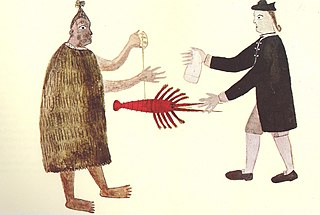| "Puha and Pakeha" | |
|---|---|
 | |
| Single by Rod Derrett | |
| Released | 1965 |
| Format | 7" EP 45 rpm |
| Recorded | 1965 |
| Genre | Novelty, Comedy |
| Length | 3:17 |
| Label | EMI (His Master's Voice) |
| Songwriter(s) | Rod Derrett |
"Puha and Pakeha" is a 1960s New Zealand novelty song, written and performed by Rod Derrett. Darkly humorous in nature, it is about Māori people in early New Zealand preparing 'boil-up' meals of puha (a leafy vegetable that grows in the wild) and Pākehā (New Zealanders of European descent).

New Zealand is a sovereign island country in the southwestern Pacific Ocean. The country geographically comprises two main landmasses—the North Island, and the South Island —and around 600 smaller islands. New Zealand is situated some 2,000 kilometres (1,200 mi) east of Australia across the Tasman Sea and roughly 1,000 kilometres (600 mi) south of the Pacific island areas of New Caledonia, Fiji, and Tonga. Because of its remoteness, it was one of the last lands to be settled by humans. During its long period of isolation, New Zealand developed a distinct biodiversity of animal, fungal, and plant life. The country's varied topography and its sharp mountain peaks, such as the Southern Alps, owe much to the tectonic uplift of land and volcanic eruptions. New Zealand's capital city is Wellington, while its most populous city is Auckland.

A novelty song is a comical or nonsensical song, performed principally for its comical effect. Humorous songs, or those containing humorous elements, are not necessarily novelty songs. The term arose in Tin Pan Alley to describe one of the major divisions of popular music; the other two divisions were ballads and dance music. Novelty songs achieved great popularity during the 1920s and 1930s. They had a resurgence of interest in the 1950s and 1960s.

Black comedy, also known as dark comedy or gallows humor, is a comic style that makes light of subject matter that is generally considered taboo, particularly subjects that are normally considered serious or painful to discuss. Comedians often use it as a tool for exploring vulgar issues, thus provoking discomfort and serious thought as well as amusement in their audience. Popular themes of the genre include death and violence, discrimination, disease, sexuality, religion, and barbarism.
In 2004, a complaint was laid with the Broadcasting Standards Authority that the song was culturally insensitive to Pākehā. In its ruling, the BSA said that it could not be interpreted as such, and that it was "clearly humorous". [1]
The Broadcasting Standards Authority is a New Zealand Crown entity created by the Broadcasting Act 1989 to develop and uphold standards of broadcasting for radio, free-to-air and pay television.
The song was re-released on iTunes in October 2012 to promote the comedy horror film Fresh Meat . [2]

iTunes is a media player, media library, Internet radio broadcaster, and mobile device management application developed by Apple Inc. It was announced on January 9, 2001. It is used to play, download, and organize digital multimedia files, including music and video, on personal computers running the macOS and Windows operating systems. Content must be purchased through the iTunes Store, whereas iTunes is the software letting users manage their purchases.

Comedy horror is a literary and film genre that combines elements of comedy and horror fiction. Comedy horror has been described as able to be categorized under three types: "black comedy, parody and spoof." It often crosses over with the black comedy genre. Comedy horror can also parody or subtly spoof horror clichés as its main source of humour or use those elements to take a story in a different direction, for example in The Cabin in the Woods or Tucker & Dale vs. Evil.

Fresh Meat is a New Zealand horror comedy film about a modern-day family of Māori cannibals who are taken hostage by a gang of criminals. It stars Temuera Morrison and Kate Elliot. It is Danny Mulheron's directorial debut. The film had its world premiere at the 32nd Hawaii International Film Festival on 15 October 2012. It had its New Zealand premiere on 25 October.








